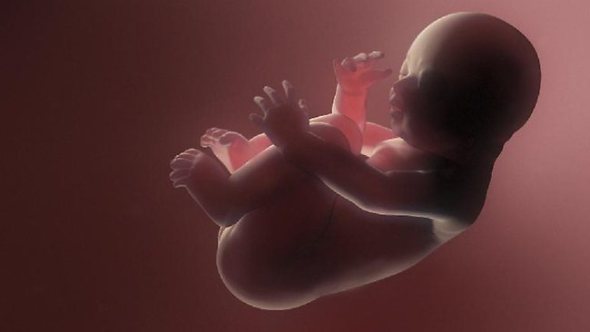Female brains change in sync with hormones

Although it has already been known for some time that the brain does not remain rigid in its structure even in adulthood, scientists have recently made a surprising discovery. The brain is not only able to adapt to changing conditions in long-term processes, but it can do this every month.
For women, caffeine could be ally in warding off dementia

Among a group of older women, self-reported caffeine consumption of more than 261 mg per day was associated with a 36 percent reduction in the risk of incident dementia over 10 years of follow-up. This level is equivalent to two to three 8-oz cups of coffee per day, five to six 8-oz cups of black tea, or seven to eight 12-ounce cans of cola.
Breastfeeding associated with better brain development and neurocognitive outcomes

A new study, which followed 180 preterm infants from birth to age seven, found that babies who were fed more breast milk within the first 28 days of life had had larger volumes of certain regions of the brain at term equivalent and had better IQs, academic achievement, working memory, and motor function.
Brain activity and response to food cues differ in severely obese women

The brain’s reward centers in severely obese women continue to respond to food cues even after they’ve eaten and are no longer hungry, in contrast to their lean counterparts. The study compared attitudes and the brain activity of 15 severely obese women (those with a body mass index greater than 35) and 15 lean women (those with a BMI under 25).
Mothers with diabetes more likely to have anti-fetal brain autoantibodies

Mothers of children with autism and were diagnosed with metabolic conditions during pregnancy, particularly gestational and type 2 diabetes, were more likely to have anti-fetal brain autoantibodies in their blood compared to healthy women of children with autism. The presence of these anti-fetal brain autoantibodies has been previously found to be specific to some mothers of children with autism and rare among mothers of children without autism.
Postpartum depression least severe form of depression in mothers

Postpartum depression–a household term since actress Brooke Shields went public in 2005 about her struggle with it–is indeed serious. But depression that begins before or during pregnancy is often more severe because it lasts longer and usually goes undetected until the doctor screens for it after the birth of the baby.
Too much cellular ‘noise’ can affect brain development
Using cutting-edge imaging technology, biologists have determined that uncontrolled fluctuations (known at “noise) in the concentration of the vitamin A derivative Retinoic acid (RA) can lead to disruptions in brain organization during development. Identifying how a cell responds to a signal made by another cell, despite the level of noise present, may improve our understanding of developmental disorders.
Born to run? Love of exercise may start in the womb

If you see me on the street and I am running, there is a good chance you should be running as well, because something dangerous is coming. I don’t run, I hate to run, I loathe running, did I mention I don’t like to run? Maybe it’s all the running I did in the military, or if a new study is correct, it may have to do with my mother. Which is good, because now I can blame someone else for my hatred of running.
Investigating potential fetal exposure to antidepressants

Depression is a serious issue for expecting mothers. Left untreated, depression could have implications for a fetus’s health. But treating the disease during pregnancy may carry health risks for the developing fetus, which makes an expecting mother’s decision whether to take medication a very difficult one. To better understand how antidepressants affect fetuses during pregnancy, scientists studied exposure in mice.
Stereotype means girls should expect poorer physics grades

Imagine that you are a female student and give the exact same answer to a physics exam question as one of your male classmates, but you receive a significantly poorer grade. This is precisely what happens on a regular basis, as concluded in a study by Sarah Hofer, a researcher in the group led by ETH professor Elsbeth Stern.
Women, do you want to be a leader at a teaching hospital? Grow a mustache!

Thirteen percent of department leader positions at top academic medical institutions in the United States are held by women, while nearly 20 percent are held by men with mustaches. The findings of the tongue-in-cheek study, an analysis of more than 1,000 headshots of department leaders at top National Institutes of Health-funded academic medical institutions, provide a new context for examining gender disparities in the field.
Vaccine clears some precancerous cervical lesions in clinical trial
Scientists have used a genetically engineered vaccine to successfully eradicate high-grade precancerous cervical lesions in nearly one-half of women who received the vaccine in a clinical trial. The goal, say the scientists, was to find nonsurgical ways to treat precancerous lesions caused by HPV.
The alien within: Fetal cells influence maternal health during pregnancy (and long after)
Parents go to great lengths to ensure the health and well-being of their developing offspring. The favor, however, may not always be returned. Dramatic research has shown that during pregnancy, cells of the fetus often migrate through the placenta, taking up residence in many areas of the mother’s body, where their influence may benefit or undermine maternal health.
Confidence in parenting could help break cycle of abuse
To understand how confidence in parenting may predict parenting behaviors in women who were abused as children, psychologists have found that mothers who experienced more types of maltreatment as children are more critical of their ability to parent successfully. Intervention programs for moms at-risk, therefore, should focus on bolstering mothers’ self-confidence–not just teach parenting skills, the researchers said.
Don’t touch that dial: TV’s subliminal influence on women’s perception of pregnancy and birth
In an era where popular culture is increasingly recognized for its impact on lay understanding of health and medicine, few scholars have looked at television’s powerful role in the creation of patient expectations, especially regarding pregnancy and birth.
Research investigates whether solar events could trigger birth defects on Earth
Studies find airplane crews at high altitude are exposed to potentially harmful levels of radiation from cosmic rays. But could these cosmic rays pose hazards even at sea level? In recent years, research has suggested congenital birth defects down on Earth’s surface could be caused by these “solar particle events” — spikes in cosmic rays from the sun that touch off the northern lights and sometimes hamper communications or the electric power grid.
Vaginal douches may expose women to harmful phthalate chemicals
Women who use feminine care products called douches may increase their exposure to harmful chemicals called phthalates–and black women may be at particularly high risk due to frequent use. Public health officials advise against the use of douching products, which can hide vaginal infections and lead to other serious health problems. Despite that, douching products are still a popular item on the drug store shelf, and are disproportionately used by black women.
Baby’s first stool can alert doctors to future cognitive issues
A newborn’s first stool can signal the child may struggle with persistent cognitive problems, according to Case Western Reserve University Project Newborn researchers. In particular, high levels of fatty acid ethyl esters (FAEE) found in the meconium (a newborn’s first stool) from a mother’s alcohol use during pregnancy can alert doctors that a child is at risk for problems with intelligence and reasoning.
Women’s faces get redder at ovulation, but human eyes can’t pick up on it
Previous studies have shown that men find female faces more attractive when the women are ovulating, but the visual clues that allow this are unclear. Now, new research investigating whether it might be to do with subtle changes in skin colour has shown that women’s faces do increase in redness during ovulation, but the levels of change are just under the detectable range of the human eye.
Researchers find mechanisms that initiate labor
Researchers at UT Southwestern Medical Center have identified two proteins in a fetus’ lungs responsible for initiating the labor process, providing potential new targets for preventing preterm birth. Previous studies have suggested that signals from the fetus initiate the birth process, but the precise molecular mechanisms that lead to labor remained unclear.
Study links heartbeat to female libido
Sexual dysfunction in women can be linked to low resting heart rate variability, a finding that could help clinicians treat the condition, according to a study by psychologists from The University of Texas at Austin.
Can drinking alcohol harm the child before the mother knows she is pregnant?

Photo credit goes to: Cute moments photography
These days pregnant “moms to be” have lots of things to worry about, from second hand smoke to the chemicals in their make-up. Well they can unfortunately add one more thing to that list, a new study finds that alcohol drunk by a mouse in early pregnancy changes the way genes function in the brains of the offspring. The early exposure was also later apparent in the brain structure of the adult offspring. The timing of the exposure corresponds to the human gestational weeks 3-6 in terms of fetal development.
Enzyme in cosmetic products can cause allergy
Papain is found naturally in papaya and is often referred to as a “plant-based pepsin” in reference to the digestive enzyme pepsin that is present in the stomach. Researchers looked at the effect of papain directly on the skin of mice as well as on skin cells in the petri dish. Skin consists of several layers joined via cellular connections called “tight junctions”. The project team showed that papain induces a breakdown of these cell-cell junctions. On the skin, papain results in a loss of the barrier function.
Sleep may be critical to avoid miscarriage
If you are trying to have a baby, a good night’s sleep is more important than ever. A recently published research report shows that the womb has its own “body clock” that needs to synchronize with the mother’s body clock to ensure optimal conditions for fetal growth and development. The inability of a mother’s body clock to synchronize with the womb’s clock may be at least part of the reason why some women have difficulty carrying a pregnancy to full term.
Research on medical abortion/miscarriage may change international routines
Two scientific studies are expected to form the basis of new international recommendations for the treatment of medical abortions and miscarriages. One of the studies shows that it is possible to replace the clinical follow-up examinations recommended today with medical abortions that include a home pregnancy test. The other study shows that midwives can safely and effectively treat failed abortions and miscarriages in rural districts of Uganda.
Fish, mercury, and pregnancy: Good news for seafood lovers
People freak out when they hear mercury is in something and sometimes for good reasons. In vaccinations for example a very small amount of ethyl-mercury WAS used as a preservative in vaccines, people got scared so now it is not used in most vaccines. Methylmercury* however is found in seafood and larger fish in particular (in much, much higher concentrations than in vaccines mind you). They may sound the same, but the methylmercury in fish is far more toxic. That said, it turns out that fish isn’t as toxic as we thought, so all you pregnant women who love fish will be happy to hear this.
Obesity and a high-fat diet might be hurting your baby
We’ve seen it on the news, we’ve probably even read some articles about it, the “western” diet is awful. Yet, despite the warnings, Americans as a whole still eat awfully. Unfortunately, the health effects are very real and a new study shows that it may not just be effecting an expected mothers health, it may be harming the unborn child as well.
Antidepressants and the effects on your unborn child
Think you know what causes depression? Well unfortunately scientists don’t have the exact answer, surprised? That’s not the only problem, there is an ever growing concern that we live in an over medicated society and a newly released study doesn’t paint a better picture. About 15 percent of women in the United States suffer from anxiety disorders and depression during their pregnancies, and many are prescribed antidepressants. However little is known about how early exposure to these medications might affect their offspring as they mature into adults.
New tool helps Doctors treat Menopause

With the SCOTUS ruling for the Hobby Lobby case [if you have no idea what I am talking about you can read about that anywhere on the net, like here] it may seem like everyone is fighting the war against women’s care at full speed. Thankfully that isn’t the case everywhere, there are still people out there who are trying to make a difference. Introducing the world’s first toolkit is designed for GPs to use with women from the age of 40 to help them decide the best care for dealing with menopause. Thought to be the first of its kind, researchers say the toolkit has the potential to help manage menopausal conditions for women globally.
How a Mother’s Diet Shapes a Child
Peanut butter and pickles, yummy… well maybe if you are pregnant, speaking of which, [see how that works?] researchers from the MRC International Nutrition Group, based at the London School of Hygiene & Tropical Medicine have shown a link between a mother’s diet before conception and the effect it has on a babies genes.
The study, which was done in rural Gambia, where the population’s dependence on locally grown foods and a very different seasonal climate impose a large difference in the eating habits between rainy and dry seasons, gave researchers the ability to look specifically at the how diet would affect the genes in an unborn child.
































